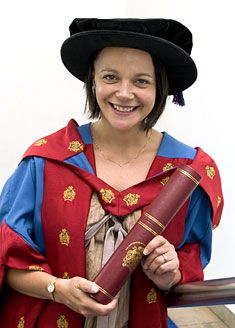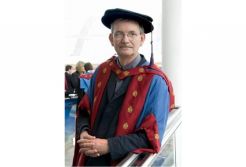20 July 2009
Manchester's drama queen
Honour for top television producer

TOP television producer Nicola Shindler has been honoured in her home city of Manchester.
The 40-year-old from Rochdale received an Honorary Doctorate of Arts from Manchester Metropolitan University at a graduation ceremony at the Bridgewater Hall.
Nicola set up and directs independent company Red Productions, which is behind a string of hit series like Queer as Folk, Clocking Off, Unforgiven and Our Friends in the North.
After attending Bury Grammar School, she studied History at Cambridge University before becoming a producer and script-editor at the BBC in London.
Love Manchester
MMU Vice-Chancellor Professor John Brooks said: ‘We recognise Nicola Shindler for her outstanding contribution to drama as a scriptwriter and producer. Her Red Production Company has put Manchester firmly on the location map for British TV drama.’
Nicola said: ‘It’s a marvellous honour. You never expect anything like this, when you are just doing a job you love! It is very flattering and somewhat overwhelming.’
‘I love Manchester, it is very strong as a creative centre. I think writers respond to the city, its language and its stories which are full of character.’
Speaking to graduates from the Faculty of Art and Design, she said: ‘The key into television is to have something to contribute, even if you do not know where you will fit in just yet. Learn to have a particular skill-set, whether it is lighting, cameras, editing or whatever.’
Comedians
‘Two graduates from MMU – Steve Coogan and John Thompson – may not have known exactly where they would fit into television, but as students they learned the precious skill of comedy!’
And she said that Manchester was a ‘good place to be right now for the creative arts’.
Red Productions, the name is inspired by the Reds of Manchester United – is notable for its policy of reading all scripts it is sent. Added Nicola: ‘Reading everything is our way of giving something back and it is not that we necessarily want only new writers – it is important to give people access who might not get it anywhere else.’


